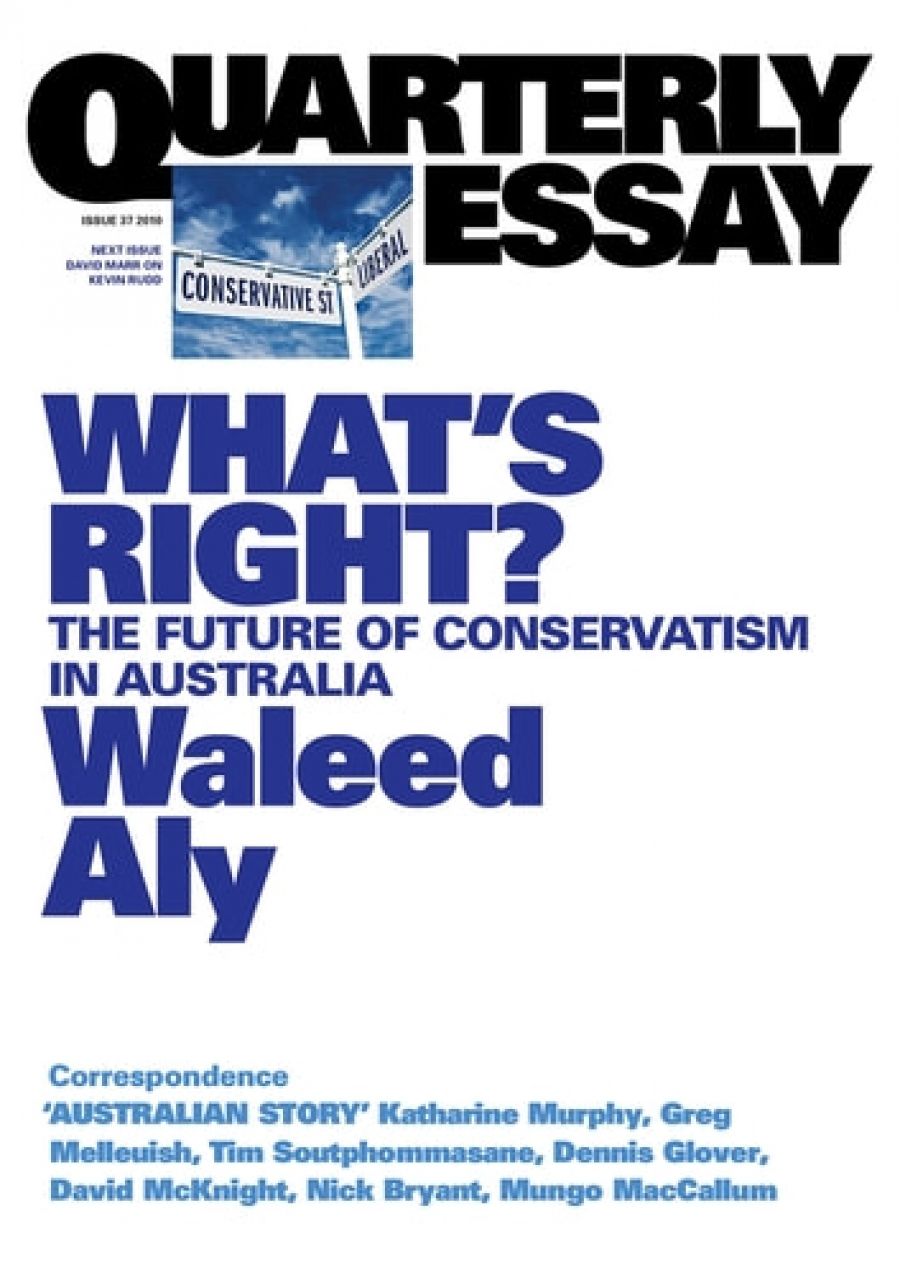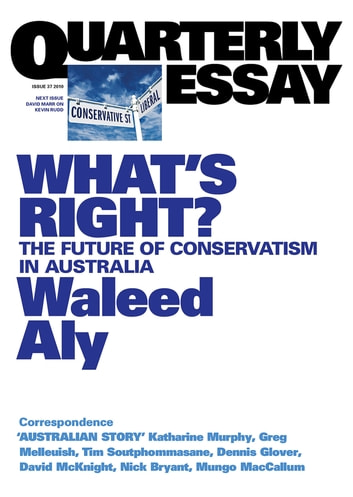
- Free Article: No
- Contents Category: Journal
- Review Article: Yes
- Online Only: No
- Custom Highlight Text:
In the latest edition of Quarterly Essay, entitled What’s Right?, Monash University academic Waleed Aly argues that right-wing politics has lost its way in the twenty-first century. Aly’s engaging and sophisticated analysis will appeal to readers from around the political spectrum. Aly begins by arguing that the terms ‘Left and Right are the hallmark of a political conversation that is obsessed with teams …’ Such a ‘conversation’ is unhelpful, for many reasons. ‘Team Right’ is hardly homogeneous, and many of its members have, in recent decades, abandoned traditional conservatism. Aly supports this point by citing the Bush administration’s distinctly ‘un-conservative’ decision to invade Iraq, and the implementation of the controversial WorkChoices laws by John Howard’s government. Aly contends that such endeavours are by-products of neo-conservatism and neo-liberalism.
- Book 1 Title: What’s Right? The future of conservatism in Australia (Quarterly Essay 37)
- Book 1 Biblio: Black Inc. $19.95 pb, 142 pp
- Book 1 Cover Small (400 x 600):

Aly’s overall argument has already been made many times, most notably by David McKnight in his excellent book Beyond Right and Left (2005). Aly’s essay does, however, have many strengths. He has conducted extensive research, citing commentators as diverse as Edmund Burke, Friedrich Hayek and Janet Albrechtsen. Aly focuses primarily on the Australian political landscape, particularly during the Howard years, but also draws examples from the United States and the United Kingdom.
Aly’s style is both conversational and nuanced. Most impressively, he avoids reproducing the left–right dyad of which he is critical. Early in the text, Aly identifies as someone who finds himself ‘in agreement with much conservative political philosophy, yet in consistent disagreement with politicians and commentators who call themselves conservatives’. He may not concur with politicians such as Howard or Tony Abbott, but he never disparages them.
A striking feature of the ‘culture wars’ is the way in which traditional ideological standpoints have been transformed. What’s Right? provides an accessible analysis of this unique political phenomenon.


Comments powered by CComment